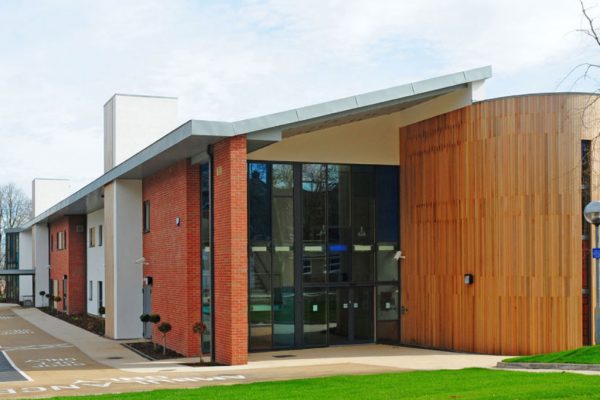Staff at Goscote Hospice and Walsall Palliative Care Centre will be showcasing the range of support and care available to people at the end of their lives as part of national Hospice Care Week.
They hope to dispel some of the myths around hospice care and show that it doesn’t solely focus on death and dying but helps patients feel more in control to make informed decisions.
Since October 2020 the hospice, formerly known as St Giles, has been delivered as an integrated service through Walsall Healthcare NHS Trust. It is housed at Walsall Palliative Care Centre in Goscote Lane, along with Fair Oaks Day Hospice and a range of other specialist palliative care services.
Sindy Dhallu, Care Group Manager & Professional Lead for Palliative & End of Life Care, said staff were looking forward to raising awareness of hospice care during the focus that starts today (Monday 4 October) and runs until 8 October.
She said: “There is a misconception that hospices are sombre places but they are in fact a comforting haven for patients and carers, offering them individualised support that is tailored to their needs.
“They offer holistic care that is:
Physical – focusing on supporting symptoms such as pain
Emotional – addressing fears and worries
Psychological – coming to terms with life-limiting illness
Social – getting personal affairs in order
Religious and Spiritual – focusing on your beliefs and thoughts
“Our staff support and respect patients’ wishes and help them to plan for the future. It is also important that we offer guidance to carers who are trying to deal with a variety of emotions at a difficult time. We are able to give them access to our wider specialist palliative care teams and value their role as we work in partnership to do the best for our patients.”
Tracey Grinell, Fair Oaks Day Hospice Nurse Manager, said: “The holistic approach provided by hospices and day hospices educates patients with life-limiting illness on how they can continue to live with their illness – the focus is not just about death and dying.
The hospice’s fundamental role is for patients to feel well supported and in control of their lives and their death alongside having support with making informed decisions. The hospice aims to assist patients in considering their own needs and wishes while planning for the death that they prefer in the place of their choice. This is enhanced by using an Advanced Care Plan/ReSPECT document and the vital discussions with patients and their families that enables this to work well.”
Some of the common myths that exist around hospices are:
A hospice is just a place to die
Hospices offer support from specialist doctors, nurses, pharmacists, therapists and many others to manage symptom control and patients and carers’ needs.
A hospice is a place where no treatment is offered
Hospices will offer treatments as necessary to meet the patient’s needs following discussions with them and carers. This may include antibiotics to treat infections. Patients can continue to access hospital treatments such as chemotherapy or radiotherapy.
Every patient in a hospice is NOT for resuscitation and not for any treatment
Any Do Not Attempt Resuscitation Order is completed following discussion with patients and carers; this can often be a difficult conversation that the medical or nursing teams will lead. This can often be in place for most patients – but not for all.
Hospices do not meet the religious, spiritual or cultural needs of patients
Hospices always aspire to offer individualised care, respecting patients’ wishes is important. Religious or spiritual support from different faiths can be offered.
Hospices are sad and depressing places
Hospices are very light, airy and calm, offering patients opportunities to be involved in diversional therapies. Visits from different members of the Specialist Palliative Care Teams such as Complementary Therapies often offers a different dimension to the care provided.
You will die alone
Staff will discuss visiting with carers and always support the patient to have their nearest and dearest with them at end of life.

